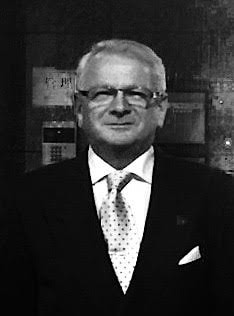With the dramatic announcement of the sale of retail travel giant Thomas Cook following their loss of £1.5 billion brings the blight of the travel agent community into the news once more. Last week Wall Street bank Citigroup advised investors to sell shares in the travel company.
Confidence that travel agents can survive in the age of DIY bookings online is paper thin.
The sheer convenience and ease of being able to explore, book flights and holidays online, with your loved ones participating in the process at home, at a time convenient to yourself, is very attractive to most
of us.
Gone are the days when you make a trip during office hours, to the travel agent on the high street. We knew it was the only way to book a holiday in the bad old days. Booking online then was a mystical and jargonistic and only accessible on airline-backed computer systems using special codes and trained staff. Most of us didn’t know where to start. Now it’s out with the laptop, sitting in bed in your pajamas, or on the settee with a cup of tea and it’s as easy as 1-2-3.
Some of my family own a travel company. Business is nothing what it used to be. My friends work in DMCs - that certainly isn’t what it used to be.
A high-profile BBC journalist speaking at a travel industry event, recently warned the travel industry that large, well-established brands no longer have the trust they once enjoyed. That is certainly true.
“We are living through a crisis of trust,” the journalist warned.
Today instead of listening to ‘experts’ or ‘institutions’, we now put more faith in the opinions of our colleagues, or friends on Facebook.
The BBC journalist also said, “We live in an age where feelings resonate more than facts. People now value empathy over expertise. You all need to work out what this means about how you should talk to customers.”
So it’s clear that selling travel has fundamentally changed, as was forecast. My fear along with many others is that we will be unable as an industry, to successfully make these enormous changes and invoke huge paradigm shifts to work out how to speak to people in a way that’s relevant to them. There’s a danger for any industry that doesn’t adapt quickly enough to new audiences. Remember Kodak.
Thomas Cook looks like the latest failure, but in the last 18 months there have been more retail failures than since the start of the century. Many brands have lost the art of communicating with the marketplace. They don’t know how to engage with customers.
My family are already talking about diversifying and moving into other areas of tourism and travel. I hope it’s not too late.
Confidence that travel agents can survive in the age of DIY bookings online is paper thin.
The sheer convenience and ease of being able to explore, book flights and holidays online, with your loved ones participating in the process at home, at a time convenient to yourself, is very attractive to most
of us.
Gone are the days when you make a trip during office hours, to the travel agent on the high street. We knew it was the only way to book a holiday in the bad old days. Booking online then was a mystical and jargonistic and only accessible on airline-backed computer systems using special codes and trained staff. Most of us didn’t know where to start. Now it’s out with the laptop, sitting in bed in your pajamas, or on the settee with a cup of tea and it’s as easy as 1-2-3.
Some of my family own a travel company. Business is nothing what it used to be. My friends work in DMCs - that certainly isn’t what it used to be.
A high-profile BBC journalist speaking at a travel industry event, recently warned the travel industry that large, well-established brands no longer have the trust they once enjoyed. That is certainly true.
“We are living through a crisis of trust,” the journalist warned.
Today instead of listening to ‘experts’ or ‘institutions’, we now put more faith in the opinions of our colleagues, or friends on Facebook.
The BBC journalist also said, “We live in an age where feelings resonate more than facts. People now value empathy over expertise. You all need to work out what this means about how you should talk to customers.”
So it’s clear that selling travel has fundamentally changed, as was forecast. My fear along with many others is that we will be unable as an industry, to successfully make these enormous changes and invoke huge paradigm shifts to work out how to speak to people in a way that’s relevant to them. There’s a danger for any industry that doesn’t adapt quickly enough to new audiences. Remember Kodak.
Thomas Cook looks like the latest failure, but in the last 18 months there have been more retail failures than since the start of the century. Many brands have lost the art of communicating with the marketplace. They don’t know how to engage with customers.
My family are already talking about diversifying and moving into other areas of tourism and travel. I hope it’s not too late.
| About the Author: A former hotel GM in several properties in Thailand, Andrew is currently President of Skål International Bangkok, Vice President Skål International Thailand and Vice President Skål Int’l Asia (Southeast) and continues to travel and write. www.ajwoodbkk.com |



 RSS Feed
RSS Feed
















